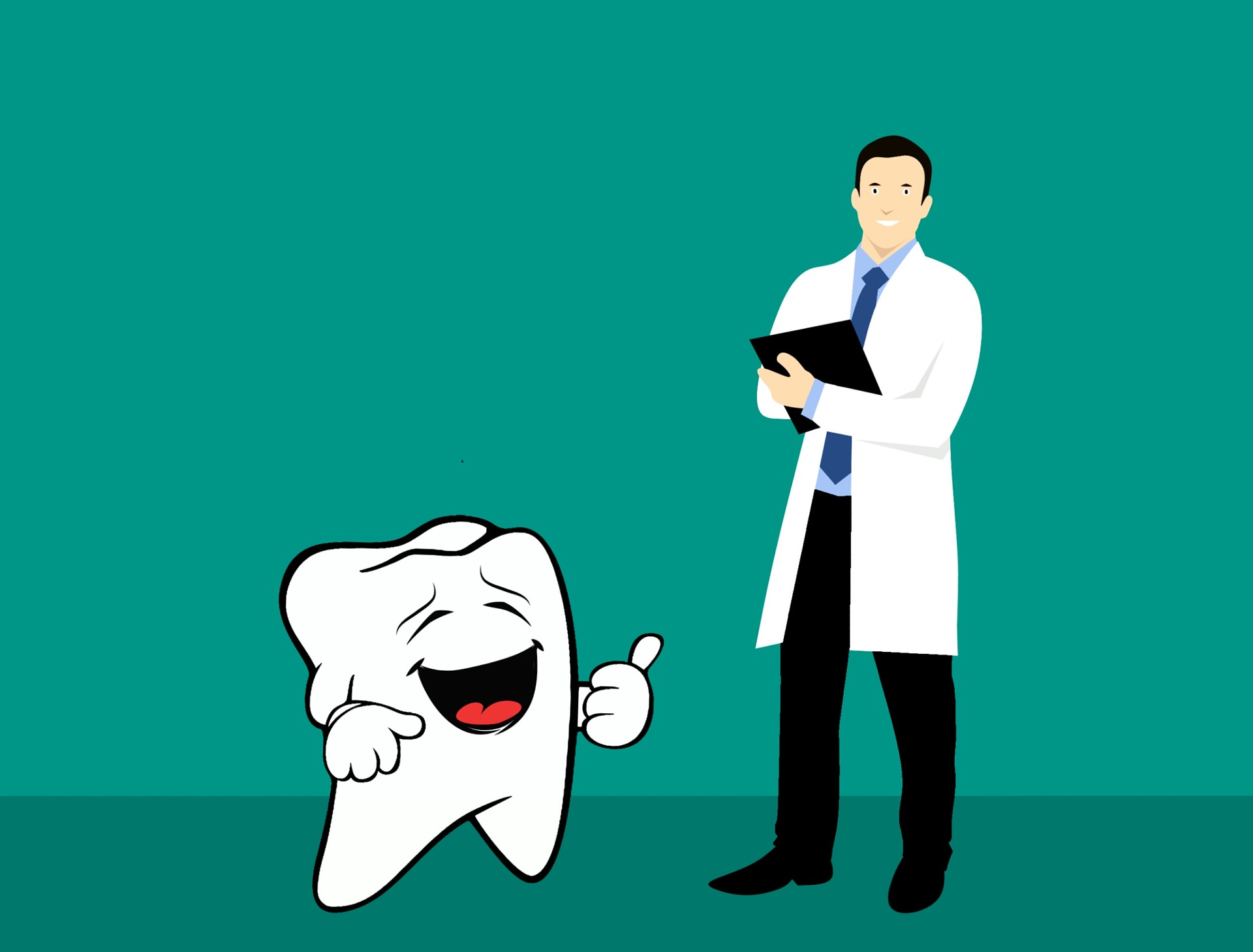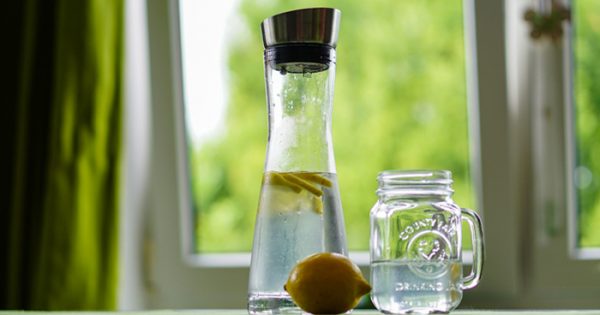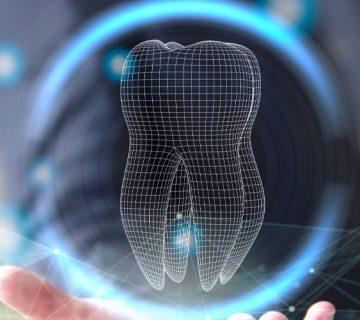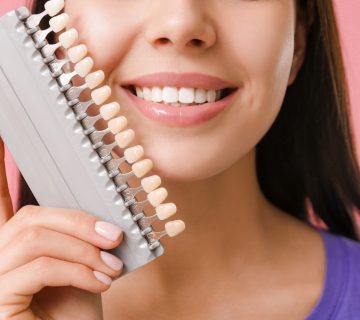Are you taking care of your teeth? It is one of the single most important preventative measure that you can do yourself. Poor oral health leads to gum disease, facial pain, infections of the mouth, and more serious health problems, including stroke, heart disease, irritable bowel syndrome, kidney disease, diabetes, and oral cancer. According to the ADA, nearly 50% of Americans don’t go to the dentist because of fear, money, or the belief that their mouths are healthy. Here are some easy ways you can care for your teeth, naturally.
From the Inside-Out
A healthy mouth involves your entire body. Your body needs fat-soluble vitamins and minerals to keep your mouth healthy, too.
These minerals and vitamins support the body as a whole but also create more mineral-rich saliva, which is how your body protects your teeth.
Saliva and Oral Health
Saliva is how your body protects your teeth. On a practical level, teeth are remineralized as your saliva washes over your teeth. However, you must have appropriate nutrients in your body, or your saliva will lack the minerals needed to protect and strengthen your teeth.
Watch Your Diet
Eating a balanced diet of fruits, vegetables, meats, and dairy provide you with all of the nutrients that you and your teeth need.
Keep in mind that acidic foods increase the risk of tooth decay because it breaks down the enamel of your teeth and allows bacteria to get into your teeth. You don’t have to avoid acidic foods altogether, but knowing which foods are acidic will help you take control of those portions.
Fruit and Vegetables
Munching on apples, celery sticks, carrots, and peppers make your teeth strong and healthy.
Sesame Seeds
Use sesame seeds as a oral scrub. They gently remove plaque and tartar and don’t damage your teeth. Chew them up, but don’t swallow them.
How to care for your teeth and gums—naturally!
1. Brushing
Your brushing routine is super-important for your overall mouth health. You should brush at least twice-a-day. If you do it properly, brushing should take about two minutes. Do you have problems brushing that long? Set a timer for two minutes to make sure you brush for the appropriate amount of time.
- Start your brushing routine in the back of your mouth. If you follow the same routine each time, it will become a habit.
- In order to loosen food debris and plaque that builds up around the gum line, brush in a circular motion downward from the gums.
- Don’t forget the backsides of your teeth! The back surfaces of all your teeth are just as important as the front. Food and debris can build-up there just as easily.
- Brushing the biting surface of your teeth will loosen food particles that settle into the indentations.
- Bacteria builds up on your tongue and the inside of your cheeks. Be sure to brush these areas to promote fresh breath.
2. Floss
There is a lot of controversy over flossing right now. For years, it has been said that “flossing is the most important thing you can do to protect your teeth and gums.” However, many people overlook this simple task or don’t do it correctly.
Now, there is mounting evidence that flossing doesn’t help prevent gum disease.
With that said, there are minimal risks and a lot of potential rewards. So, go ahead and floss!
Use an unwaxed, natural floss to get between your teeth and below the gum line where plaque, food particles, and bacteria hang out.
Note: Petroleum byproduct are used in waxed floss. Also, check the package for the cruelty-free label. You’ll know that no animals were harmed in the production of that floss.
How to Floss
- Cut a length of floss that you can wrap around your fingers and still have enough to hold and work in between your teeth with an up-and-down motion.
- Curve the base of each tooth in a C-shape and work the floss beneath the gum line. As you move from tooth to tooth, use a clean part of the strand.
Make Your Own Toothpaste
This toothpaste recipe has no fluoride, is safe for children, and those with thyroid problems. Oh and it’s YUMMY, too!
3. Drink water
The average American drinks only 2 1/2 cups of water a day. To help you stay hydrated, you need to drink at least 8-8 oz. cups of water each day.
If you are thirsty, you are already dehydrated. Besides keeping your body hydrated, water helps wash away food and bacteria left in your mouth.
Your saliva is produced from water. It neutralizes the acidity in your mouth that erodes tooth enamel and weakens your teeth.
Make it a habit to rinse your mouth or swish with water after every meal. This will help eliminate leftover bits of food and speed up the remineralization process.
Make your own Mouth Wash
In a glass jar, mix 1/2 cup of filtered water, 2 teaspoons of baking soda, 2 drops of tea tree oil, and 3 drops of peppermint essential oil. Shake well. Store in your bathroom cabinet.
To use: Swish 3 teaspoons in your mouth for a minute or two. Try to avoid swallowing it.
Note: Double the recipe if you need a larger batch.
4. Chew xylitol gum
Bacteria love the sugar alcohol in xylitol, but bacteria can’t break it down. The bacteria starve to death. Chewing xylitol gum reduces gum disease and tooth decay successfully. It also promotes saliva production, which increases the antibacterial forces in the mouth. It also promotes saliva production, which increases the antibacterial forces in the mouth.
5. Oil pulling
Oil pulling is an ancient Ayurvedic technique to keep your mouth healthy. Both sesame and coconut oil have antibacterial properties that keep your teeth and gums in tip-top shape. And you’ll also notice that oil pulling naturally whitens your teeth. Do this first thing in the morning.
How to oil pull:
- Put 1 tablespoon of sesame or coconut oil in your mouth.
- Gently swish it around for 10 to 20 minutes.
- Spit it out into the garbage. Avoid gargling or swallowing the oil.
- Rinse your mouth with warm water.
- Brush your teeth as usual.
- Repeat daily, first thing in the morning, on an empty stomach.
You may have to build up to the 20 minutes. At first, I had so much saliva in my mouth along with the oil that I could only swish for a minute or two. Start where you can and build-up to 10 to 20 minutes.
What oil pulling does:
Oil pulling draws out toxins from your body. It is primarily used to keep your teeth, gums, and mouth healthy and improves your overall health.
6. Tongue scraping
Get yourself a tongue scraper. Stainless-steel tongue scrapers, which you can buy online, are much easier to clean.
What it does:
Tongue scraping reduces and removes the bacterial growth on your tongue that leads to bad breath. Removing bacterial growth is good for you because it reduces the likelihood of tooth decay, tooth loss, gum disease, and other oral problems.
How to tongue scrape:
- Do your tongue scraping first thing in the morning.
- Watch in a mirror. Place the tongue scraper at the back of your tongue. Pull it to the front edge of your tongue, and discard the build up.
- Repeat this motion twice.
- Be gentle! You don’t want to hurt your taste buds.
7. Drink herbal tea
Herbal, red, white, and green tea are excellent after-dinner palate-cleansers. They also have the added benefit of keeping plaque from developing.
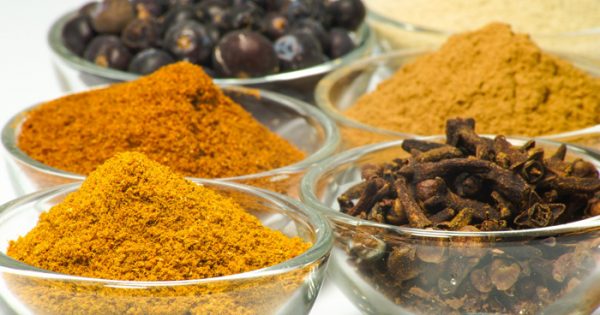
8. Herbs & Spices
Herbs and spices have long been favored to clean and freshen the breath. Many herbs have antibacterial properties, which help keep your teeth and gums from getting infected.
Cloves
Suck on a whole clove to lessen tooth pain.
Aloe vera
Apply aloe vera gel in small quantities if you have gum inflammation. Be warned, natural aloe gel is extremely bitter tasting.
Turmeric
Keep your gums and teeth healthy and infection-free with turmeric, which contains antibacterial and anti-inflammatory properties.
Mix a ¼ teaspoon of turmeric powder and a little bit of water into a paste. Brush your teeth a few times a week to control plaque and prevent gingivitis.
Licorice
According to a 2011 study published in the American Chemical Society’s Journal of Natural Products, scientists discovered that two important compounds in licorice helped kill the major bacteria responsible for tooth decay and gum disease.
Use a soft licorice stick like a toothbrush to remove plaque and tartar.
9. Add supplements
Minerals are very important to overall health, but especially for teeth and gums. Diet alone might be enough, but many foods lack nutrients from being grown in nutrient depleted soil, so supplements help fill the gaps. Check with a medical professional before adding supplements.
- Vitamins A, C, D, K
- Magnesium
- Gelatin
- Cod Liver Oil
10. Herbal breath fresheners
- Chew on fresh parsley or mint leaves.
- Rub your teeth with orange peel to help fight tartar build-up and whiten teeth.
- Gargle with an old-fashioned solution
1 cup of water and 2 Tablespoons of apple cider vinegar. Combine and store in a glass jar. Shake well before use. Rinse and repeat every 2-3 days for maximum value.
Do you use any of these natural tooth care techniques? Tell us your story in the comment below.
Resources:
American Dental Association.
U.S. News & World Report. August 2, 2016. David Oliver. Health Buzz: Flossing Doesn’t Actually Work, Report Says.

